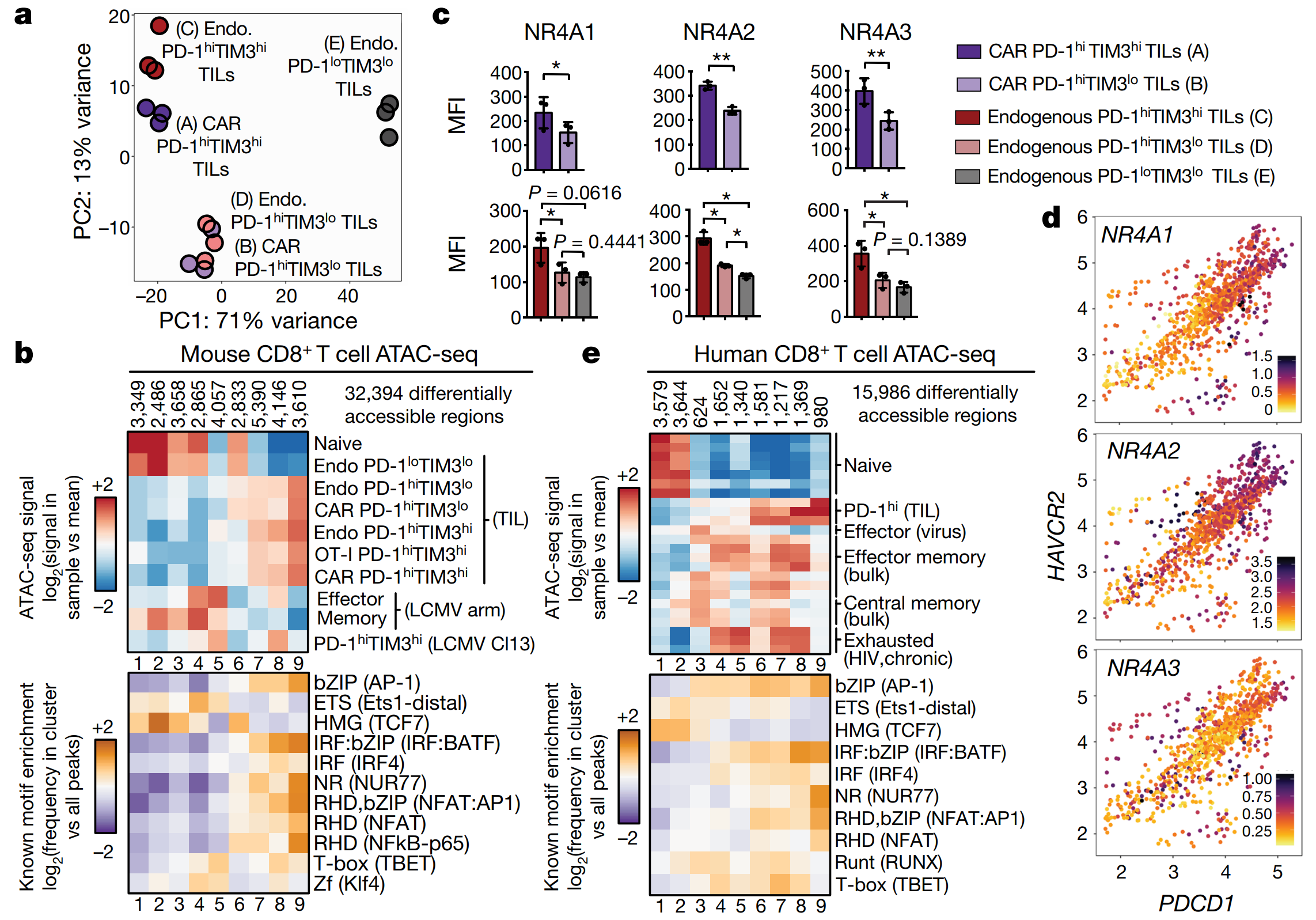More and more cancer patients are receiving a promising new treatment called CAR-T cell therapy. In this treatment, the patient’s own T cells are removed from the body and genetically modified to better identify cancer cells. These genetically modified T cells are then infused back into the patient, where they initiate an immune response to destroy cancer. CAR-T cell therapy has saved the lives of patients with blood cancer, but there is one drawback: because of a phenomenon called T cell failure (T cell exhaustion), T cells entering solid tumors may cease to function.
Now, in a new study, researchers from the Rahoya Institute of Immunology (LJI), have found a way to fight T-cell failure and make CAR-T cell therapy more effective. They found that a family of proteins called Nr4a transcription factors play a prominent role in regulating genes associated with T cell failure. By using a mouse model, they confirmed that the treatment of mice with CAR-T cells lacking Nr4a transcription factors reduced the size of the tumor and improved the survival rate. The results were published online in the journal Nature on Feb 27, 2019, under the title “NR4A transcription factors limit CAR T cell function in solid tumors.” The authors of the paper are Dr. Anjana Rao and Dr. James P. Scott-Browne of the Department of Signal Transduction and Gene expression, Institute of Immunology, La Jolla.
Previous studies at Rao Labs have found that another family of transcription factors called NFAT activates the Nr4a protein in T cells that enter the tumor. In 2017, Rao Labs and Dr. Patrick Hogan, a researcher at the Rahoya Institute of Immunology, led a study that measured the “failure marker (exhaustion marker)” of T cells in melanoma mouse models. Their analysis has shown that NFAT and Nr4a proteins contribute to the failure of cancer-resistant T cells (PNAS, 28 March 2017, doi:10.1073/pnas.1620498114).
Lead author Joyce Chen, a graduate student at Rao Labs, said the new study reveals how T cells function and suggests the possibility of addressing T cell failure in future CAR-T cell therapy. “although there are many steps from our experiments to clinical treatment, every bit of new information we find adds to our knowledge base and may help improve cancer immunotherapy,” Chen said. “
The new study expands previous studies in Rao Labs that have revealed that levels of Nr4a transcription factors have increased in chronically infected T cells. Just like T cells that are exposed to cancer antigens for a long time, these T cells are attacked by virus antigens for a long time. After a period of time, this stimulation causes T cells to fail, and they stop functioning.
The researchers conducted the tests under conditions similar to perfusing CAR-T cells into patients. They genetically modified T cells from patients to make them CAR-T cells with the ability to attack tumors. The CAR-T cells were then infused into mice receiving tumor transplants. The mice in the experimental group were also genetically modified so that their CAR-T cells lacked members of the Nr4a family. However, the control mice retained these members of the Nr4a family.
These experiments confirm that Nr4a transcription factors do play a role in regulating T cell failure. Most of the mice injected with Nr4a-deficient CAR-T cells survived, and their tumors subsided and remained small during the 90-day experiment. In contrast, almost all mice receiving normal CAR-T cell infusion with naturally occurring Nr4a transcription factors died of their tumors on the 35th day.
“It is encouraging that we have identified and confirmed that these transcription factors play an important role in T cell failure” Chen said.
Chen says there are many steps from the results of the study to being able to translate them into human treatment because it is not possible to easily edit multiple genes in human cells without knowing the safety consequences; however, understanding the role of NFAT and Nr4a transcription factors solves a mystery in immunology, thus providing cancer researchers with a new target to design better treatments.
Chen said future research will investigate the role of other transcription factors in T cell failure, especially those directly affected by NFAT and Nr4a. “We have a lot to learn” she said.
Reference
Chen, Joyce, et al. “NR4A transcription factors limit CAR T cell function in solid tumours.” Nature 567.7749 (2019): 530-534.

